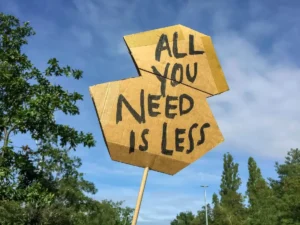Too many Americans live without emergency savings in their life. This is can put you and your family in a precarious situation. It can seem very difficult to put money away in the event of something happening, but it is important to put a priority on your emergency savings fund. In the best-case scenario, you save money and put it towards your retirement. In the worst-case scenario, you have money to keep you afloat or to pay for unexpected bills and expenses thrown your way.
Why You Need to Save for Emergencies:
1. To Give You a Buffer if You Lose a Job
When you lose a job, the effects could be devastating. When you live paycheck-to-paycheck, missing even one payment can mean the difference between having a roof over your head and being homeless. Looking for a new job can take time, and you want to be secure and know you can survive without your job while you look for a new one. The reduced stress will help you keep a clear head and have a winning attitude at the next interview.
2. To Help Cover Expenses If You’ve Been Injured
Similarly, if you’ve been let off work temporarily because you have been injured, or you need more special care that your insurance won’t cover, you will need money. Saving for emergencies includes covering unexpected costs that come from being injured.
3. To Give You Time to Cope
When something traumatic happens, people react to it in different ways. Sometimes they completely shut down in their grief or in shock. For whatever reason, you need to take time off work in order to cope; you’ll need the extra money to give you time to focus on yourself, instead of needing to force yourself to work when your mental health and heart are breaking.
4. To Pay for Unexpected Bills
If your car breaks down, or your fridge stops working, or any other important item in your life, you need to have the money to either replace it or to get you through. Fixing a car can be a devastating cost for those who are not prepared for it, and yet they need their vehicle to work.
Common Injuries and Accidents You Could Endure:
1. A Car Accident
Car accidents happen to everyone. Having money saved means that you will be able to get car accident treatment for auto injuries and fix your car, all in one go. If the car accident was your fault, and the damage was minor, for instance, you don’t want to go through an insurance company. You also don’t want to skimp out on physical therapy, either, as even whiplash can leave lasting pain and health problems.
2. A Fall
Falls are very common, and if your workplace doesn’t provide benefits, you will need savings to support yourself and your family while you recover. This is true especially for older people, who are more susceptible to breaking bones when they fall.
Ways to Save For Emergency Situations
Now that you know why you should save for an emergency fund, follow this quick guide to get you started on saving for your emergency fund:
1. Begin by Making Note of Every Purchase You Make
Before you try and put money away to save, you should first make a note of all your purchases instead. Do this for a month, or however long you have between paychecks. The more detailed list, the better – you will need it to determine what you can cut out and what needs to stay.
2. Sit Down and Make Note of Non-Essentials
Once you have your list, you will then need to go through it and try to cut out as many items as you can. For instance, if you buy a coffee every day, or if you eat out. Another good way to find ways to save is to go through your cupboards. Make a note of what you buy and what you use so that you can be more efficient with your next grocery run. You don’t need to live frugally for long – just long enough to have enough saved to support yourself for at least three months.
3. Cut out Non-Essentials
Buy only what you absolutely need. The longer you keep doing this, the better you will be at saving money. Find coupons, buy non-perishables on sale, and find other tricks that work for you and your lifestyle. Saving money means knowing where to look for savings and being savvy with your spending.
4. Put the Money You Would Have Spent into Savings
Put the money that you would have spent (as you know by your list in the beginning) and put that money instead into your savings. This means that you put the money you have left over into your savings before you cash your next paycheck.
5. Put Money Directly from Your Paycheck into Savings
Another option is to instead choose a set amount that will go immediately from your paycheck into your savings account. This is a better solution if you aren’t good at money management and need the extra push of having the money off-limits to save it.
6. Live with A Friend or Family Member While You Save
Another great solution is to live at home for a while or with a friend. You will need to pay less rent than you were previously, or no rent at all. Be clear about how long you are planning to stay, and tell them why – that you want to save for an emergency fund so that you can support yourself in a crisis. Move between family members and friends if you need to, so that you don’t overstay your welcome.
Saving for emergencies is critical. There are too many variables in lif,e and not having a financial buffer when you lose your job, a loved one, or face an unexpected bill is irresponsible. Don’t let one emergency ruin the home you have built for yourself. Start saving today – if nothing does end up happening, you can use it towards your retirement.



